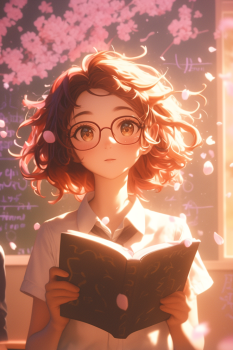Chapter 4
“I’m a chemistry major. This question looks simple, but actually solving it seems to require a lot of thinking.”
The speaker held up a piece of scratch paper, covered in dense scribbles, and looked completely overwhelmed.
David Carter glanced at the problem again.
The much-complained-about question 77 was a black-and-white chess piece arrangement problem, asking: with three pieces per row, what’s the maximum number of rows you can arrange?
It seemed simple, but was actually difficult and required a solid math foundation—almost unfair for an intelligence competition. But among the 100 backup questions Eleanor Reed had found, there wasn’t a better option, so she picked this one.
Grace Bennett shamelessly shifted the blame: “Isn’t this way too math department?”
“Sanwei is just relying on their math department’s overwhelming strength, that’s all.” Someone pointed their pen at William Scott with clear annoyance.
“So this question still won’t work.” Grace Bennett said directly, “Let’s change it. Does anyone else have any opinions?”
David Carter just sat on the side listening, not voicing any opinion.
Before long, everyone went through the question bank again, but still felt there wasn’t a better choice than question 77.
“Nothing else seems to work. Classmate Carter, do you have any replacement suggestions?” someone asked her.
David Carter said, “Personally, I think this question is quite elegant, and the solution is clever. It’s actually pretty suitable.”
“Senior is so impressive.” Someone banged their head on the table.
David Carter: “I only knew after looking at the answer.”
“So is this question actually hard? Do you need really solid math knowledge to solve it?”
“I’m a philosophy person.” David Carter shook her head honestly, indicating it was really hard to say.
Everyone started talking at once, and more opinions emerged.
Suddenly someone suggested, “Why not get a math major to try it?”
“We’re at Sanwei, right? Should we ask your Henry Clark?” Someone patted William Scott on the shoulder.
Chapter 3: No Words
Like a fish swimming underwater suddenly leaping out into the blue sea, sunlight dazzling.
Hearing the name Henry Clark, David Carter’s heart skipped a few beats, and she felt inexplicably happy. She sat at her seat, spun her pen, and drew a little figure holding a cheering sign on the blank paper in front of her.
The others started excitedly discussing.
“Let’s have Henry Clark try it—if the male god solves it in 3 seconds, does that mean it’s okay as the final question?”
“If it takes more than 5 seconds, is it too hard?”
“What if Henry Clark also takes a long time?” The curly-haired boy lowered his voice, then answered himself, “Oh, that’s impossible.”
“Old Bolton’s wave of first criticizing then praising is really skillful.”
The student council group got more and more excited as they talked, and somehow the whole thing turned into giving the entire set of questions to Henry Clark to try.
David Carter said, “Actually, we could just ask a teacher…”
But when it came to Henry Clark, she lost her confidence, her voice weak, quickly drowned out by the crowd’s excited chatter. She could only put her hand down, though she was actually looking forward to seeing Henry Clark breeze through the intelligence competition questions Eleanor Reed had picked.
But actually going to find Henry Clark?
David Carter thought about it—if it were up to her, she’d definitely chicken out.
“The problem is, who’s going to find Henry Clark?” Soon, the group realized that while it sounded fun, when it came to actually doing it, everyone shrank back.
Just as David Carter was about to suggest again that asking a teacher would work, she heard someone say, “Let’s draw lots!”
Those three words were like a lifeline, instantly getting everyone’s agreement. Little paper balls were quickly made and piled in the middle of the conference table. The group scrambled for a while, and soon all the paper balls were gone.
David Carter was holding one too. Her palm was slightly damp, and the white paper ball looked almost translucent at the edges in the sunlight. She couldn’t even say what she was feeling. She and Henry Clark had been classmates since elementary school—through middle school, high school, and now university. All this time, they’d maintained a 16-year relationship as classmates at the same school but never in the same class, always strangers.
You could call it fate, but there was never any real connection. She’d watched Henry Clark all along, more like a witness to his life, seeing him grow from a prodigiously talented boy into an exceptionally outstanding young man.
And now…
David Carter looked at the paper ball in her palm. If Henry Clark’s name appeared on it, would that be the first intersection in their lives?
With a subtle, indescribable feeling, she opened the paper ball. The paper was pure white, completely blank.
She stared for a moment, then let out a small sigh, feeling calm—this was how it should be. It’s not like Old Carter said: that anything in the world could happen to anyone. For example, there was no way she and Henry Clark would have such a coincidental connection.
David Carter thought, both disappointed and relieved. Just as she was stuffing the paper ball into her pocket, the meeting room gradually quieted down, and all eyes turned to her. David Carter was baffled, following their gazes,
She turned her head and saw the girl who had shared materials with her earlier.
The girl’s hands were tightly clasped on the table, her posture awkward, looking extremely nervous.
“Emma Sullivan?” Grace Bennett suddenly spoke up, “Did you get it?”
At these words, Emma Sullivan shrank back sharply.
“Little Mei, hehehe.” Someone said with a grin.
“I…” Emma Sullivan slowly nodded, like a robot, “I… I don’t want to go.”
“You’re afraid to go find Henry Clark?”
